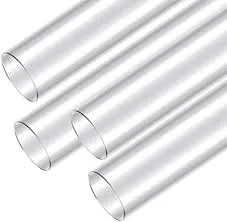Окт . 07, 2024 05:30 Back to list
sprinkler hdpe pipe
Understanding Sprinkler HDPE Pipes A Key Component in Irrigation Systems
In the realm of modern agriculture and landscaping, effective irrigation systems play a crucial role in crop yield and water conservation. Among the various materials used in these systems, High-Density Polyethylene (HDPE) pipes have emerged as a popular choice, particularly in sprinkler irrigation setups. This article delves into the characteristics, advantages, and applications of sprinkler HDPE pipes, highlighting why they are essential for efficient irrigation.
What is HDPE?
High-Density Polyethylene, or HDPE, is a thermoplastic polymer made from petroleum. Known for its high strength-to-density ratio, HDPE is utilized in various applications, from packaging to construction. In irrigation, it’s primarily favored for its durability, flexibility, and resistance to corrosion, making it an ideal material for transporting water under pressure.
Key Characteristics of Sprinkler HDPE Pipes
1. Durability HDPE pipes are designed to withstand harsh environmental conditions, including UV exposure, extreme temperatures, and various chemical agents present in soil. This durability significantly extends the lifespan of sprinkler systems, reducing the need for frequent replacements.
2. Flexibility Unlike rigid piping systems, HDPE pipes offer exceptional flexibility, allowing for easier installation around obstacles and more efficient distribution of water. This flexibility also helps reduce the risk of damage during installation and operation.
3. Corrosion Resistance The chemical composition of HDPE renders it resistant to rust, corrosion, and other forms of degradation that can occur with metal pipes. This is particularly important in agricultural applications, where soil and water chemistry can be unpredictable.
4. Low Friction Loss The smooth inner surface of HDPE pipes reduces friction loss, enabling water to flow more efficiently. This feature ensures an even distribution of pressure, enhancing the performance of irrigation systems.
5. Lightweight HDPE pipes are significantly lighter than their metal counterparts, making them easier to handle and install. This characteristic not only saves labor costs but also minimizes the energy required for transportation.
Advantages of Using Sprinkler HDPE Pipes
sprinkler hdpe pipe

1. Cost-Effective Although the initial investment might be slightly higher than traditional materials, the long lifespan, reduced maintenance needs, and efficiency of HDPE pipes make them a cost-effective choice in the long run.
2. Environmental Friendliness HDPE is recyclable, which adds to its appeal in sustainable agriculture practices. Utilizing HDPE pipes helps minimize waste and reduces the overall environmental impact of irrigation systems.
3. Versatility Sprinkler HDPE pipes can be used in a variety of irrigation applications, from large agricultural fields to small gardens. Their adaptability allows for designs that cater specifically to the needs of different crops and landscapes.
4. Reduced Water Loss The efficiency of HDPE pipes in minimizing leaks and wastage contributes to better water management. This is increasingly important in water-scarce regions where conservation is critical for sustainable farming.
5. Safety HDPE pipes do not leach harmful chemicals into the water supply, ensuring that irrigation water remains safe and uncontaminated for crops and the environment.
Applications of Sprinkler HDPE Pipes
Sprinkler HDPE pipes are utilized in various irrigation systems, including
- Agricultural Fields Farmers use HDPE pipes to create extensive irrigation networks that deliver water directly to crops, ensuring optimal growth conditions. - Landscaping In residential and commercial landscaping, HDPE pipes provide efficient water distribution for lawns, gardens, and ornamental plants. - Golf Courses and Sports Fields These infrastructures require precise irrigation to maintain their aesthetic appeal and functionality, and HDPE pipes are ideally suited for this task. - Parks and Recreational Areas Municipalities often choose HDPE pipes for public parks, ensuring that green spaces remain lush and enjoyable for the community.
Conclusion
Sprinkler HDPE pipes represent a pivotal innovation in irrigation technology, offering numerous benefits over traditional materials. Their durability, flexibility, and efficiency make them indispensable for modern irrigation systems, supporting sustainable practices in agriculture and landscaping alike. As the world continues to grapple with water scarcity and the demand for food increases, the role of HDPE pipes in efficient water management cannot be overstated. Investing in quality irrigation systems with HDPE pipes not only enhances productivity but also promotes environmental stewardship, ensuring a healthier planet for future generations.
-
PVC Transparent Sheet Roll - Durable & Flexible PVC Plastic Sheet Roll for Industrial & Home Use
NewsJun.24,2025
-
High-Quality PVC PPR Pipes and Fittings Durable ERA PPR Solutions
NewsJun.10,2025
-
High-Quality Large HDPE Sheets & Large Diameter PVC Pipe Durable Large PVC Pipe Supplier
NewsJun.10,2025
-
High Density Polyethylene Cutting Board - Durable & Food Safe
NewsJun.09,2025
-
3 Inch PVC Pipe for Durable Irrigation Affordable & Reliable
NewsJun.09,2025
-
Premium PPR Plastic Water Pipe Fittings - Durable & Leak-Free
NewsJun.09,2025

